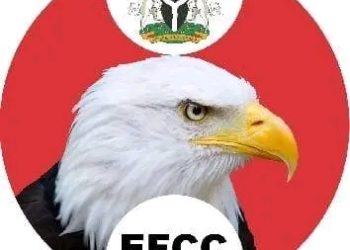ABUJA — President Bola Tinubu says the Economic and Financial Crimes Commission (EFCC) has recovered more than ₦500 billion and secured over 7,000 convictions in the last two years, crediting the gains to his administration’s “non-interference” and strengthened anti-graft architecture.
Vice President Kashim Shettima delivered the president’s remarks on Monday while declaring open the 7th edition of a three-day capacity-building workshop for judges and justices, organised by the EFCC in collaboration with the National Judicial Institute (NJI) in Abuja.
“As an administration, we have prioritised public accountability by strengthening anti-corruption agencies and giving them the needed independence,” Tinubu said, adding that recovered proceeds are being ploughed back into the economy to fund students’ loans and consumer credit schemes, among other social investment programmes.
The president also pledged continued support for the judiciary, including better welfare and working conditions for judicial officers, framing it as part of broader rule-of-law reforms. He insisted no political figure enjoys protection from prosecution: “There is no person or group who can accuse this administration of shielding political actors on account of their affiliation.”
Addressing the bench directly, Tinubu urged judges to discharge their duties with “patriotism and integrity,” warning that public confidence hinges on transparent adjudication. “Corruption is no respecter of persons… There are no special roads, hospitals, or communities for judges. We all face the same risks that stem from decades of willful theft and wastage,” he said.
He called for tighter coordination among the executive, legislature and judiciary to consolidate recent gains, stressing that Nigeria’s progress depends on a credible, predictable justice system. “A Nigeria free of corruption is possible if we all commit to doing what is right… and ensure that those who deviate from the norm are not allowed to go scot-free,” he noted.
The workshop, now in its seventh edition, is focused on enhancing judicial capacity for handling complex financial crimes—part of what the presidency describes as a push toward greater transparency, improved debt and asset recovery, and sustained deterrence against graft.




















